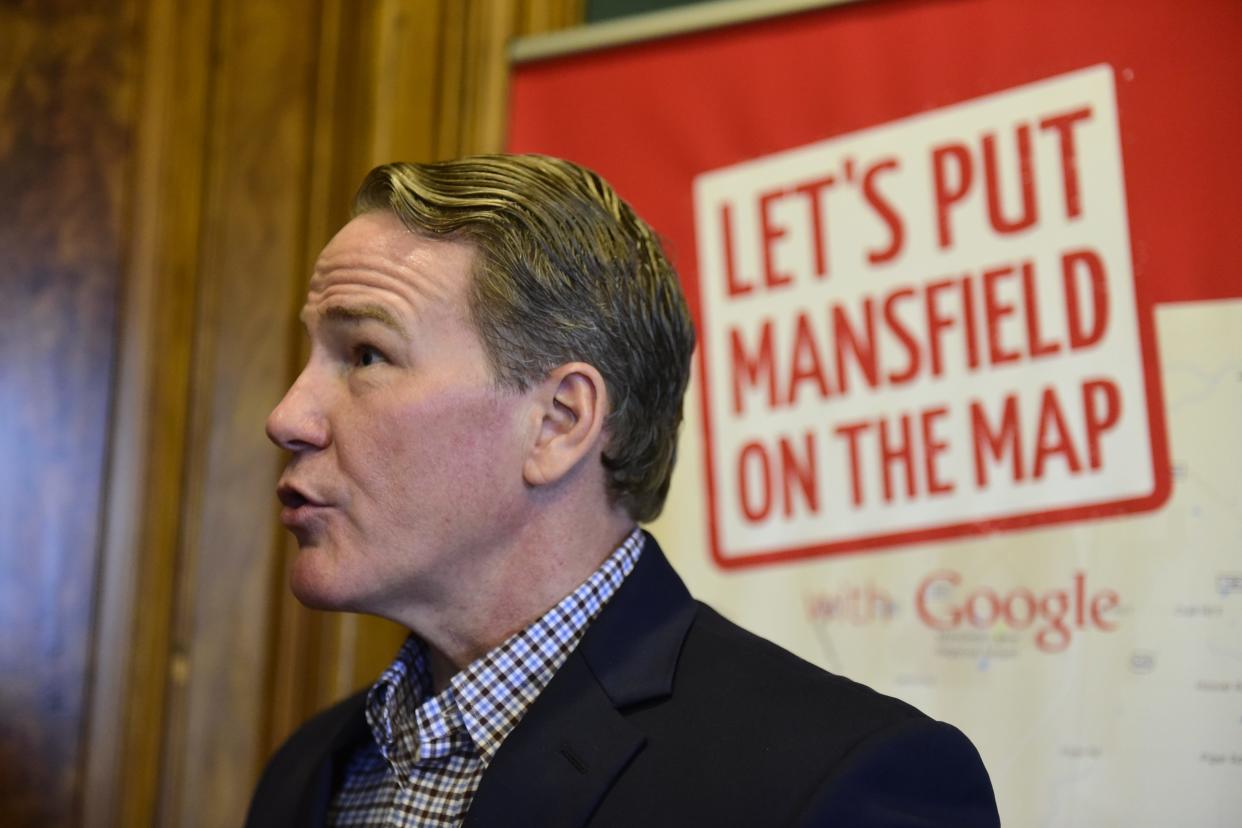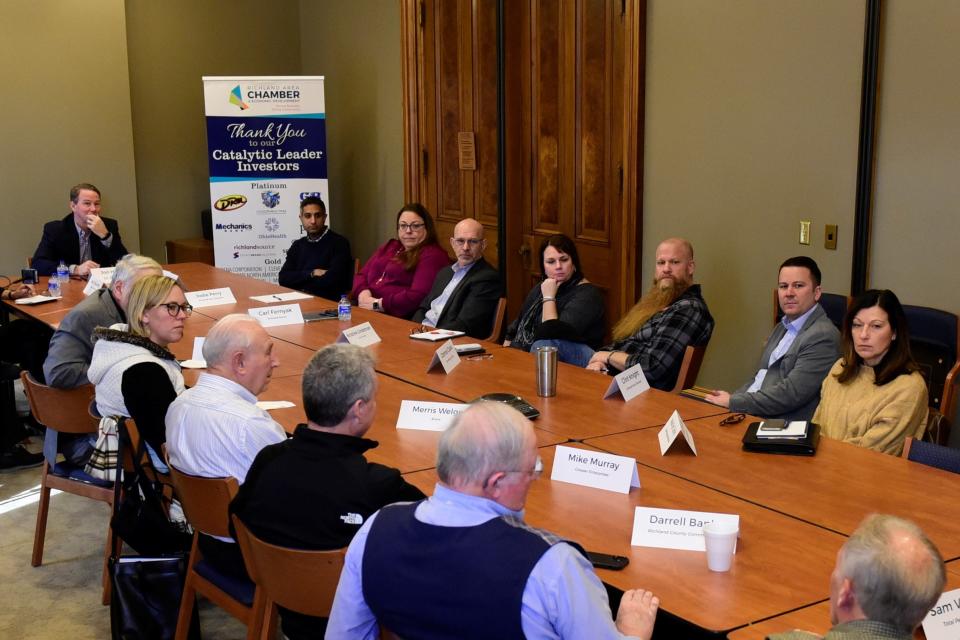Husted wants to require parents' OK before kids can use social media

- Oops!Something went wrong.Please try again later.
- Oops!Something went wrong.Please try again later.
Protecting and training future generations is key to the state's success, Ohio Lt. Gov. Jon Husted told Richland County leaders on Thursday.
That's why he and Gov. Mike DeWine want parents and guardians to give approval before children under the age of 16 can use some websites.
Husted visited the Richland Area Chamber and Economic Development office on Thursday to highlight a few projects he and the governor unveiled last week with their new budget.
"Social media is harmful to kids, particularly to young kids," Husted said. "These social media apps are intentionally addictive to children. They are sending harmful content to them and collecting data, and parents have the right to know."
'You can't go around parents'
A provision DeWine and Husted placed in their proposed state budget would require social media companies to obtain permission from parents before any Ohioan under the age of 16 can create an account.
"We're not banning anything, but we're saying you can't go around parents," Husted said. "Social media companies, you have to go through the parents if you want these kids to be signed up and we fully believe that our system that we're creating in Ohio will help."
The process would begin with verifying that any new users are at least 16. If they're not, then the company must seek consent from the child's legal guardian before proceeding.
Methods of receiving parental consent include filing an online consent form signed digitally by guardians, calling a toll-free number, processing a credit or debit card, checking a government identification, or connecting to trained personnel through a video conference.
"There's no law that ever solves every problem," Husted said, "but this will help give parents more of a say about who's reaching their children through social media, what apps they're using and put more controls and filters on it to help protect those kids."
If no consent is obtained, then the online company must deny the child's request to use the service.
Companies would have 90 days to comply if the Ohio General Assembly passes the budget and DeWine signs it into law.
'A very unique time for Ohio'
Families in Ohio have a big part in the proposed state budget. The state's second-in-command said that connecting parents with new job opportunities will not only help them, but will also help the state.
"A job doesn't solve all the problems," he admitted, "but it certainly does make the list easier."
Right now, companies are telling his office they have more jobs than applicants, and that's an issue they hope to resolve.
"This is a very unique time for Ohio," Husted said.
He said he hopes young people realize that businesses are flocking to the state, unlike three decades ago when they were leaving.
"Ohio was not very competitive then," Husted said. "We were not the best place to do business."
Relief offered for young working parents
A lot of companies bought into what Ohio was selling in 2022, the lieutenant governor explained. Intel, Ford, Honda and other big corporations agreed to invest in Buckeye State operations.
Construction on those new facilities is slated throughout 2023.
"In 2024, we're going to have to hire," Husted said.
A lot of jobs are already here, and the state's leadership feels many of them can be filled by younger adults who are still busy starting their families.

"One of the toughest times in life for moms and dads is when they have young children and they're trying to hold down a job," Husted said. "We need to help working families."
The proposed DeWine-Husted budget includes a $2,500-per-child tax deduction.
"That will help working families keep more of what they earn to spend and save on their priorities," Husted said. "We have to start looking out for working families. We want people to go to work. We want them to raise good kids. Well, we gotta give them some relief and allowing them to keep more of what they earn to be able to make ends meet around the house."
Many options for educating Ohio's workers
Education is critical in filling those jobs, many of which will require specific skillsets.
The new budget includes a one-time investment of $300 million to fund capital improvements and buy equipment for career tech education, as well as another $150 million to increase innovation hubs that will partner with universities to attract talent.
The budget also includes a $5,000 annual scholarship for students who graduate in the top 5% of their class, as long as they stay in Ohio and go to college in Ohio.
New employees aren't always needed, though, since some workers can be taught new skills.
"Our future workforce is largely our current workforce," Husted said.
The proposed Tech Cred program is designed to address that possibility.
"It's a pretty simple process," Husted said. "You pick the employee, you pick the approved training provider, and once they finish and earn that in demand credential, we will reimburse you up to $2,000."
Training for jobs in 'our modern economy'
He said that "upskilling" will allow an already great employee to handle "the kinds of jobs that are being created in our modern economy."
He stressed that employers will only be reimbursed through the Tech Cred program after employees have finished their training.
"We pay for performance, not pay for enrollment," Husted said. "That way we we're sure that we're only paying for actual credentials that people earn, which means that the employee has more skills and more earning power and more job security, and employers have the talent they need, so it's a win-win for everybody. It's a good investment."
ztuggle@gannett.com
419-564-3508
Twitter: @zachtuggle
This article originally appeared on Mansfield News Journal: Proposed state budget requires kids to get parents' OK for some websites

